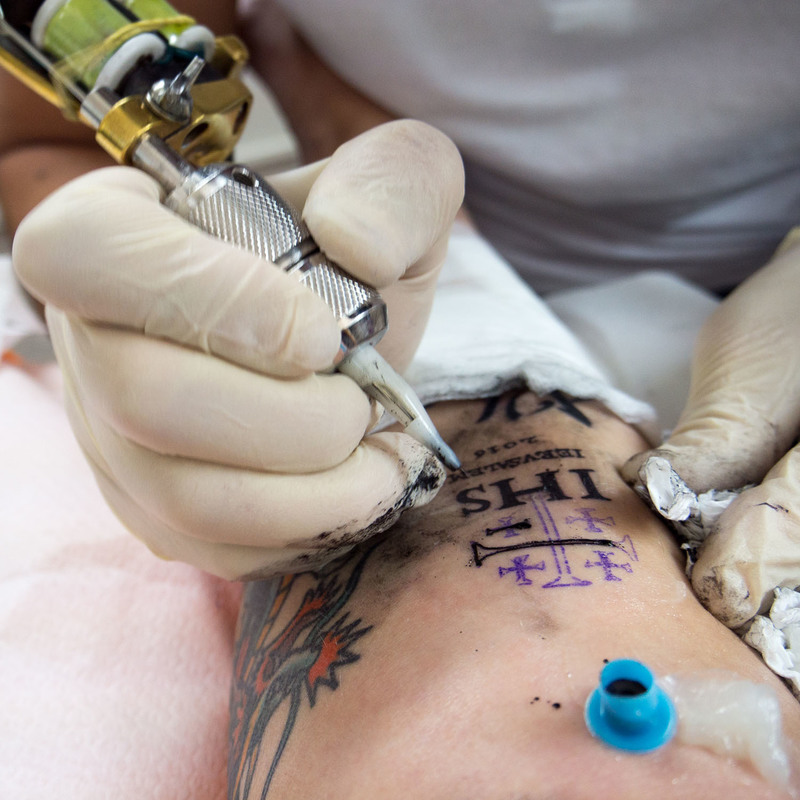Jerusalem – Getting a tattoo during the pilgrimage to the Holy Land goes back centuries, and is a physical testament to pilgrims’ faith.
Wassim Razzouk runs a small tattoo shop in Jerusalem’s Old City. On holidays, he moves to more spacious halls in local monasteries to cope with the influx of pilgrims. This Easter he moved into the basement of the St Mark Syriac Monastery. When he spoke to Middle East Eye, he had 30 customers.
Kareem Solomon, a 26-year-old Assyrian Christian who migrated to the UK from Iraq as a child, told the online news portal, “I’m Christian and I want others to know it.”
Wassim Razzouk is part of a family with 700-year-old tattooing practice, passed down on the father’s side. It originally developed in Coptic Egypt and was brought to historic Palestine when the family immigrated some 450 years ago.
British and Australian soldiers stationed in British Palestine between 1920 and 1948 became the main clientele of Wassim’s grandfather, Yacoub Razzouk, in West Jerusalem.
As a result of the first Arab-Israeli war, Yacoub and his family were forced to abandon shop and home and flee to Jordan. Later, they settled in East Jerusalem, where they became the last Palestinian family to provide tattoos to pilgrims.
Last year, Wassim opened an official tattoo in the Old City. For him, his tattooing has reaffirmed his pride in not only his Christian identity, but also in his Palestinian roots.
“Especially being from a minority [religious] community in Palestine, I feel honoured to be a custodian of a practice so deeply connected with our history in this region.”
Originally, getting tattooed in the Holy Land was not a choice for Christians, but an oppressive imposition. In Roman times, they were sometimes arrested, marked and forced to work in gold, silver and lead mines.
Following the Muslim conquest of the region in 640 AD, Christians were tattooed with a cross on their inner right wrist so that authorities could more easily identify their religion and collect taxes levied on Christian communities.
Over time, Christians claimed this mark as a sign of their faith. Some churches, especially Coptic ones, began to offer tattoos as a service to the community.
Eventually, the tattooed cross had to be shown to enter the church as a safety precaution. For persecuted Christians, the tattooed cross became a symbol of closeness to the suffering of Jesus Christ.
Source: Asia News






